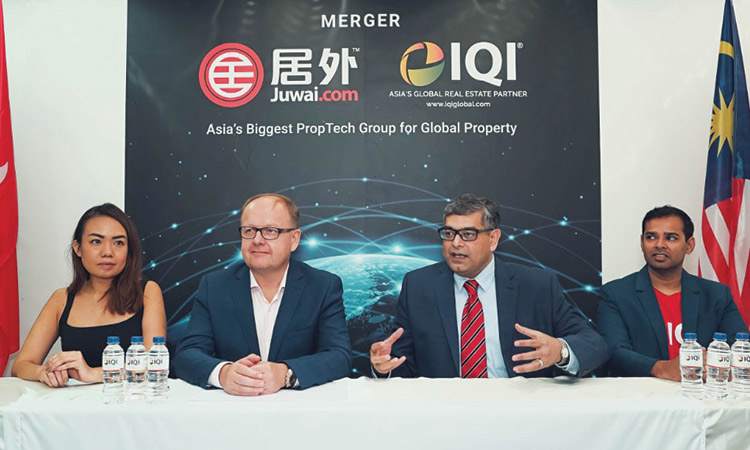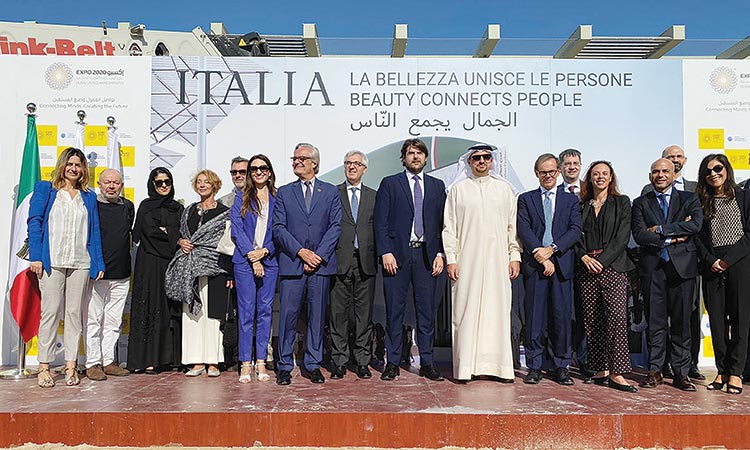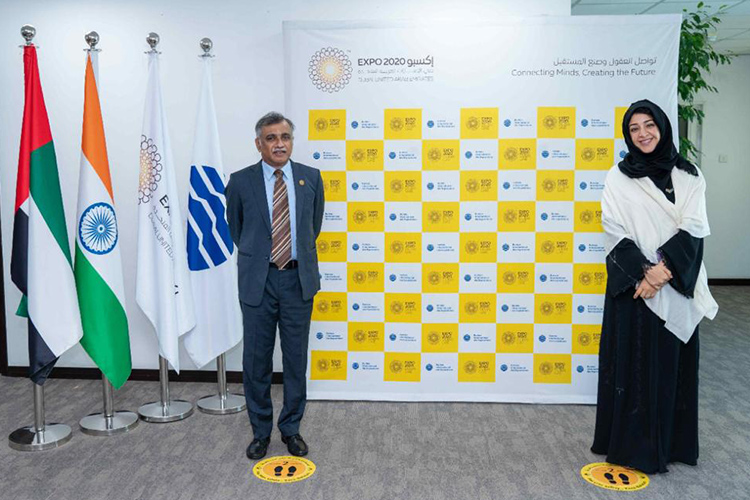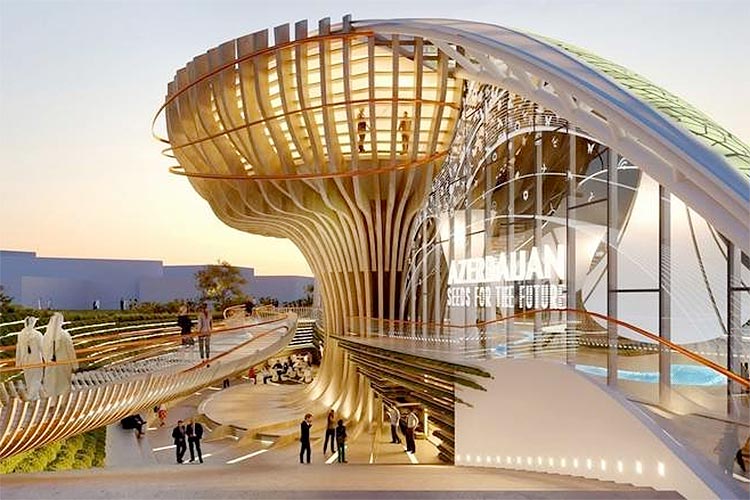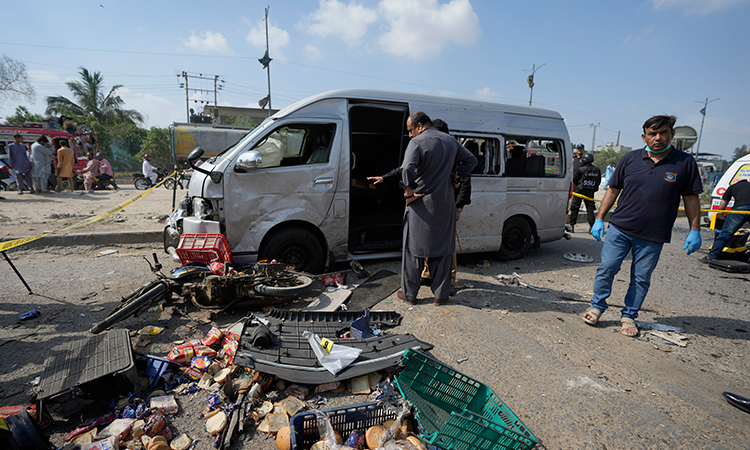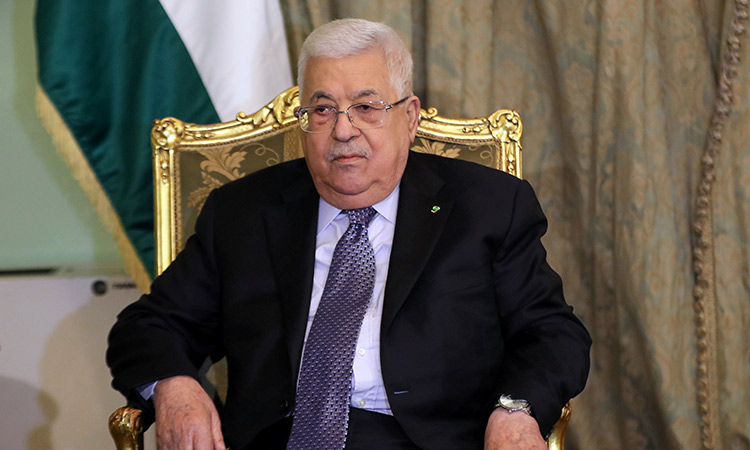Growing natural fibre industry of Philippines good for globe
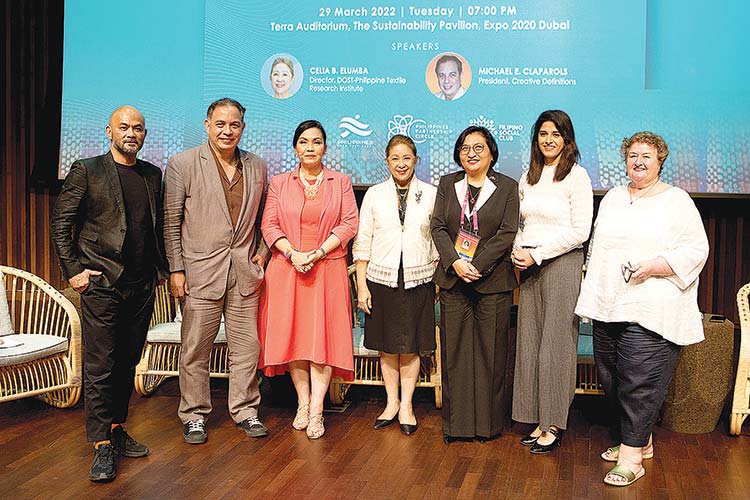
Philippine Ambassador to the UAE Hjayceelyn M. Quintana (third from right) with (L-R) Fashion Forward founder Bong Guerrero, Creative Definitions president Michael Claparols, Philippines Partnership Circle president Marlene Murphy, DoST-PRTI director Celia Elumba, Matiti Group co-founder/managing director Charul Jaitly and business coach Georgina Kelly. Kamal Kassim / Gulf Today
Mariecar Jara-Puyod, Senior Reporter
A visiting government official from Metro Manila said opportunities for worthwhile investments that ensure not only sustainable jobs but also protects man and the environment against the hazardous effects of plastics and synthetics, exist in the natural fibre industry of the Philippines.
On Tuesday evening and from the Terra Auditorium of the Sustainability District at Expo 2020 Dubai, Department of Science and Technology-Philippine Textile Research Institute (DoST-PRTI) director Celia Elumba told Gulf Today, the industry which provides voluminous office wear clothing materials to at least 1.7 million government employees across the archipelago, is included in the Department of Trade and Industry (DTI) “Investments Priorities Plan.” The scheme provides special perks and privileges such as tax incentives to necessary imported equipment and special rates for services within economic zones to investors.
“I would say that fibre extraction, the fibre supply is the next big business because the fibres already sit on the ground literally. You have to pull (these) up, extract (these), and convert (these) by pre-treating. That business in itself is already a big opportunity. And that needs to be scaled up. That needs to be in the commercial level,” Elumba said.
She was interviewed after the two-hour “TELA (Textiles Empowering Lives Anew),” the fourth and last series of the Philippine Embassy-Abu Dhabi “Bangkota (Coral Reef Philippine Pavilion) Apex Speakers Series” (E-BASS): “Planting is not a problem because the (sources of fibre) are already there.
“These fibres (from banana, bamboo, abaca-more known as the Manila Hemp, pineapple, and the bandala-a virus-resistant naturally cross-bred of abaca and the Pakol wild banana) are already available on the ground. It is now how to bring them up or pull them up from the ground and make them into a material that can be made into yarn. These are already fibres. When you extract (these), you have to pre-treat (these) so that you can now spin (these) or you can make a non-woven material out of it. The technology is on the side of the DoST. We will simply transfer the technology. What we do is we work first and then we cross reference with the DTI to bring in the other factors necessary, (the documentations). What we need are people who actually invest in and are very committed (to run) the business proposition themselves because it is their business. We can tell them what is necessary. We can show them where we think it would be best. It is good for them to verify, validate and cross reference. Obviously, there are parameters for us. As government, we also make sure that it is a fair deal coming from that sector. We need people interested to bring that up as a business proposition.”
DoST-PRTI had developed 20 hubs across the 7,103 islands of the country. So far, these have even reinvigorated age-old ways of creating fabrics or textiles such as the Banikol, T’nalak, Hablon, Inabel, and Pinilian by way of handlooms, made distinct because each piece has its own story.
With Elumba was Creative Definitions president Michael Claparols who, along with his wife, grabbed the technology-based opportunities provided for by DoST-PRTI in 2017. Since November 2021, the couple has been helping 262 farming families in Michael’s home province of Negros Occidental through the creation of trendy rubber shoes out of pineapple fibre. The outsoles of the rubber shoes are sourced from the rubber plantations situated in the Mindanaoan provinces of Bukidnon and Basilan. Other workers for the “complete production value chain” are based in the provinces of Negros Oriental and Rizal.
In his presentation, Claparols said the only imported item for the rubber shoes “are the eyes from Taiwan. The whole idea is to create value from discarded pineapple leaf fibres through material innovation and product development. Our long-term vision (is for us) to be a globally-competitive enviro-social enterprise co-creating and co-producing sustainable textile solutions made from locally-grown fibres in partnership with artisans and other stakeholders; in line with the (United Nations) Sustainability Goals of respecting social and cultural influences, use of natural materials, fair trade, innovation (through the) green processes, and collaboration.”
In her welcome remarks, Philippine Ambassador to the UAE Hjyaceelyn M. Quintana who conceptualised the E-BASS through which the country’s progress in Space Technology, Biodiversity, and Artificial Intelligence had been in focused and therefore “changed the narrative of the Philippines in this part of the world...Our Expo journey would not be complete without focusing the spotlight on our very own fashion icons who many will agree contribute in no small measure in making Dubai the World’s Fashion Capital. These extraordinary Filipinos have nurtured in the fashion ecosystem of Dubai further lending truth to Dubai being the incubator of world class talents. We are very proud of them. I hope collaborations for a sustainable future are achieved.”
